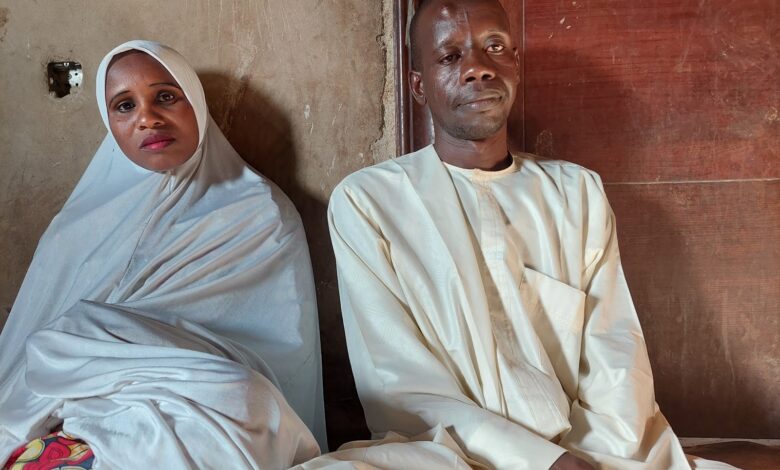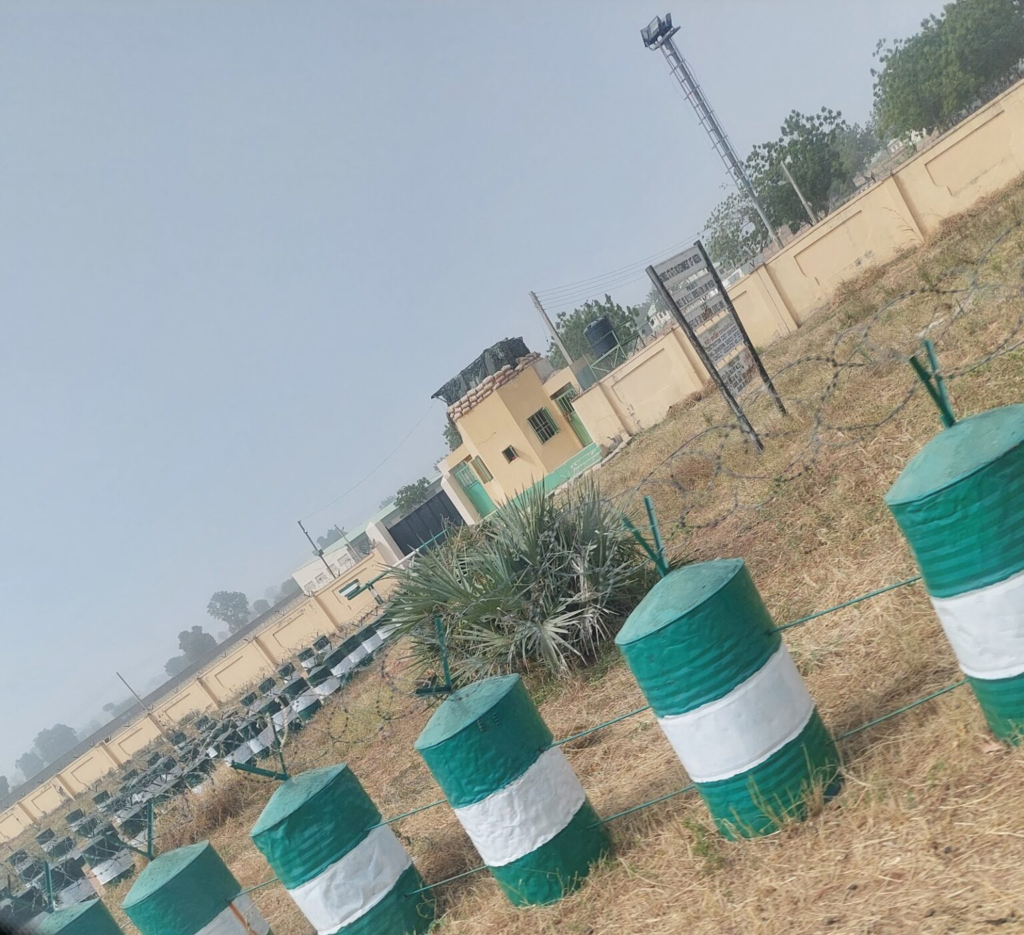‘Operation Safe Corridor Is Useful For Ex-Terrorists. But For People Like Me, It’s Injustice’
Survivors of arbitrary counterterrorism arrests bear the scars of harrowing experiences and separation.

When Bunu Ali and his family fled from the Boko Haram insurgents in Pate, Northeast Nigeria, it seemed like the best option for the 40-year-old farmer.
But fleeing his home was the beginning of a hellish ordeal, a journey in which they would see murder and death up close, endure savage beatings, and experience starvation and the bottomless sorrow of losing a child.
The family was forcibly separated as they made their way through a series of prisons and other institutions, even though they committed no crime and were entirely innocent, it would take years before they were released from behind the physical bars.
Life had changed after Boko Haram occupied the town following a military offensive.
“They came to the village and stayed with us for three months when they were chased away from Bama and Banki by the military,” he tells me.
The insurgent rule was so bad it included insurgents killing a woman and her son for alleged witchcraft. They decided it was time to make a move, so they fled at 2 a.m. and arrived in Banki town before dawn. They were not the only ones fleeing, more were on the road escaping what was now Boko Haram territory.
They were instructed at a military post to stop and raise their hands, and their luggage was checked. Their possessions, including their money and all their savings, were seized. The women and men were then separated and held in separate barracks.
A young boy was brought in to where the fleeing villagers were being held. He was asked to point to all the individuals that were in Boko Haram.
About 23 people were picked out. They begged and pleaded that they were not Boko Haram. Some said they had only been doing small things for them, selling them produce or doing small jobs.
They were led away nonetheless. The people selected were killed, Bunu Ali says, all summarily executed. News of their death spread among the others because some of those spared had been directed to dig the graves.
The detainees were kept in Banki for five days under difficult conditions without food. It was after moving to Bama that the men were then taken to another destination from the children and women. It would be years until Bunu Ali would see his family again.
The military transferred about 100 of the male prisoners to Bama Prison, where they were flogged, some with a chain and cable, and then locked up. After a day, names were taken, and a truck was brought. The detainees would then be blindfolded and tied to each other or chained en route to the infamous Giwa Barracks in Maiduguri, the state capital.
They went almost three days without water, Bunu says. When the vehicles stopped, one of them attempted to get water from a nearby block factory. The guards spotted him, and he was shot. A soldier proceeded to climb on top of the truck and open fire, killing about 20 people who had been in the same truck. At least eight others would also die from what was suspected to be thirst or trauma.
‘Almost every day, people died’
They were at Giwa Barracks for nearly three months before authorities transferred them to the maximum-security custodial centre in the state. Life was difficult in the military detention facility. It had a tight space, and there was no food or water. Almost every day, people died. Out of the 460 people Bunu knew from his village and nearby communities, 60 had died.
In 2016, the human rights organisation, Amnesty International, published a report on the horrendous conditions and deaths, including of children under six years, at the Giwa military detention centre.
When the military initially moved them, their families were told the men would be taken to Maiduguri, Bunu’s wife Zara recalls. Authorities would summon the women, separated from their husbands, to be moved to Bama Hospital, which served as a displaced persons’ camp. It’s a place that she doesn’t want to experience again, she says, adding that there was death because of hunger.
In the morning they discovered the camp gate was occupied by dead bodies. Slowly and painfully, over the next few days, her child starved to death. He began stooling and vomiting, Médecins Sans Frontières (MSF), an international humanitarian organisation, transferred him to a malnutrition facility in a nursing village in Maiduguri, but he passed away six days later.
After two years being kept in the hospital, they were told they would be returned to Bama. Their response was a revolt; they would not return without their husbands. However, some of the women went back to Bama and Banki. Those resisting were then transferred to the Dalori II camp.
“Our men have seen calamity. We have also seen calamity,” Zara said.

The transfer to a civil facility
The military later moved Bunu to the Borno maximum-security custodial facility, where he would spend over six years. The conditions were better, there was more space, but there were tough restrictions, they remained locked up most of the day. In the camp there was little water at first. The water challenges were later fixed by the Red Cross with a solar-powered borehole. The food was better than at Giwa, but the quantity was smaller.
During his stay at the civilian detention centre, he communicated with his family once after using the money he got from weaving and selling caps to pay one of the prison warders to go and find out about his family.
His time there ended when he was moved to Gombe. The journey involved restriction with a chain and blindfold, which were removed after arriving at the Operation Safe Corridor camp, a demobilisation, deradicalisation and reintegration facility located in the Mallam Sidi area of Gombe.
The camp originally served as a National Youth Service Corps (NYSC) orientation site. It was upgraded and reinforced with additional security layers to support the initiative launched in 2016 to rehabilitate and reintegrate low-level persons associated with Boko Haram.
During his 11-month stay there, Bunu went through religious and vocational education. The scholars there taught them “tolerance and peaceful co-existence”, even though Bunu had never had a problem with this, until Boko Haram and the military arrived at his home, that is. Trainees were also required to select a livelihood option, and he chose to learn tailoring alongside 160 others. However, they only had six machines, which was not enough.
When it was time to leave Gombe, authorities said they would be getting assistance to cover them for ten years, but they ended up receiving only ₦10,000 ($23) and some sewing machines; some people didn’t even get complete kits. He says that the programme is useful for Boko Haram members, but for people like him, it’s “unjust and wasteful”.

Free at last but a prisoner of scars
The next phase kicked off with a bus ride to Umaru Shehu rehabilitation camp in Maiduguri, where the state government managed the final leg before “reintegration”. After only spending a few hours and getting some money, he became a free man once again. Only 40 percent of his set were lucky to get financial support. And since his release, no official has checked on him.
The only follow-up was from the International Organization for Migration (IOM), which collected information and said they would be “reaching out” again.
Although Bunu is free, he remains a prisoner of the scars he bears from imprisonment and the impact of the protracted conflict, particularly the humanitarian suffering and inability to return to his hometown where he tilled the land for a living and had what, for him, would have been stability.
His wives remarried after hearing that he was dead. Only Zara requested for divorce from her second husband when she learned Bunu was alive. “I heard the news [of his alleged death], thought it was true, observed takaba (waiting period) but later learned he was alive. Today, we are seated together.”
That is all she will say about her separation and reunion with her husband.
She had four children but lost one to malnutrition. Bunu’s other wife (Who HumAngle has agreed not to name as she has remarried) had two children. She lost one before they fled, while the sibling died at the nutrition centre.
“We learned to stay by ourselves. Survival was difficult,” Zara says. They did not have food, and getting a World Food Programme (WFP) food ticket was a struggle.
To complement what she sometimes got from WFP, Zara learned sewing of the traditional Zanna cap and worked as a labourer on the farms or went out to fetch firewood. When I spoke to her in June, she said it had been almost 11 months since they received a food ticket.
Support Our Journalism
There are millions of ordinary people affected by conflict in Africa whose stories are missing in the mainstream media. HumAngle is determined to tell those challenging and under-reported stories, hoping that the people impacted by these conflicts will find the safety and security they deserve.
To ensure that we continue to provide public service coverage, we have a small favour to ask you. We want you to be part of our journalistic endeavour by contributing a token to us.
Your donation will further promote a robust, free, and independent media.
Donate HereStay Closer To The Stories That Matter




